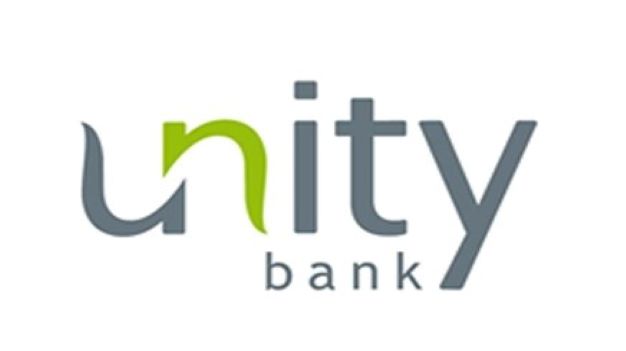E-Financial
Technology To Enhance Insurance Sector’s Financial Inclusion Programme-NAICOM

Investing in technology is one of the ways the insurance industry could effectively key into the financial inclusion target of the Federal Government.
Mr Sunday Thomas, National Insurance Commission (NAICOM), Acting Chief Executive Officer, gave the charge at the 2019 Insurance Professional Forum organised by the Chartered Insurance Institute of Nigeria (CIIN) in Abeokuta, Ogun State.
The theme of the forum which came at the heels of CIIN’s 60th Anniversary, is: “The Digital Era: Implications for Insurance Professionals.”
According to him, if the industry is to effectively key into the financial inclusion target of the federal government, it behoves on the operators and regulators to reinvigorate and face the challenges of digitalising of operations.
The NAICOM Acting CEO said that failure of the insurance companies to key into the 21st century demand for digital business services might spell doom for the industry.
“Our failure to master social, mobile, analytics and cloud technologies means we will be unable to serve even the most basic demands of customers and the post-digital world.
“Hence, we will be prevented from embracing the next digital trends or disruption.
“It is important that we work towards being part of the wave because this new set of technologies will ensure we rethink the entire industry and the parts needed to be played in the world.
“Insurance professionals need to be more alert and imbibe various relevant technologies as a baseline or core competency while adopting newer technologies – the internet of things (IoT).
“Also, telematics, “big data”, machine learning and artificial intelligence (AI), “chat-bots”, distributed ledger technology (DLT) and so on,” he said.
According to him, consumers’ experience locally or globally are going to be greatly influenced by digital technology and so insurance companies must endeavour to take their products to the comfort of the consumer.
Thomas said: “Imagine this scenario; consumers having their claims, complaints or inquires attended to with minimal human participation, tasks that ordinarily would take several daunting processes to accomplish, now simplified.
“Automated, saving downtime, improving consumer experience, reducing operational costs and providing new revenue streams.
“This scenario as just described is not far-fetched from reality ; it is not only possible and achievable, it is already happening.
“This is where our true service will lie and also how the narrative of the insurance industry and market in Nigeria will change.”
Thomas noted that the insurance business must understand that digitalisation has now taken precedence in people’s daily affairs and the consequence could be massive if it failed to fix any gap that this could create in its service delivery.
The Acting Commissioner said Insurance companies must effectively integrate into the robust financial circle to take its rightful place in the economy.
He said that the commission was committed to improving the use of technology in the sector by investing hugely in automating most of its operations.
“To this end, the commission’s portal that will integrate all insurance transactions into a single hub is being finalised.
“Hopefully, by the time we meet next year, our processes would have become fully automated and operational, ” he said.
He said that NAICOM more than ever before was resolute in sustaining existing initiatives and introducing new reforms that would transform the industry from the resisted to the sought after.
E-Financial
Majority of Nigerians do not Trust Govt with Tax Revenue – SBM

Majority Nigerians do not trust the government to properly utilise their tax payments for good use, according to a survey by SBM Intelligence across nine cities.

The survey highlighted why recent tax reforms have triggered widespread anxiety and resistance.
“Survey data from 200 respondents across nine cities indicate that 68.5 percent of Nigerians completely distrust the government’s use of tax revenues, whereas only 27.5 percent view the reforms as beneficial to the country, ” SBM intelligence said in its recent report titled Taxing Patience.
Nigeria’s 2025 Tax Reform Acts took effect in January, introducing the most comprehensive overhaul of the tax framework in decades. The reform has created more awareness among Nigerians than ever before, increasing their further distrust in the government’s use of tax revenues.
The distrust reflects years of poor service delivery and weak accountability, shaping public doubt toward the new tax system despite assurances that the reforms are designed to ease burdens and improve fairness.
“In the past, people avoided tax because they felt the government wouldn’t provide basic amenities,” businessday quoted Okanlawon Hakeem, a Lagos-based businessman, as saying.
“You drill boreholes yourself, pay for public transport yourself, and sometimes fix your local road yourself. So, you ask yourself what the government is doing with the tax money.”
The SBM Intelligence report noted that access to reliable electricity, improved security and better roads were the clearest signals that would make tax compliance worthwhile.
“46 percent of participants identified improvements in roads and security as their primary motivation for tax compliance,” SBM Intelligence noted, explaining that service delivery, rather than enforcement alone, is likely to shape taxpayer behaviour.
Government officials have defended the changes as necessary to improve public finances and reduce Nigeria’s dependence on oil revenue, pointing to the country’s historically low tax-to-GDP ratio.
With a tax-to-GDP ratio of less than 10 percent, Nigeria has lagged behind regional peers such as Ghana and Kenya. Taiwo Oyedele, chairman presidential fiscal policy and tax committee, hopes the reforms will lift the ratio toward 18 percent over the medium term.
Public sentiment, however, has not moved in step with these fiscal ambitions. According to the report, only 27.5 percent of people believe that the new tax laws are good for the country.
The report also suggests that greater awareness of the reforms often coincides with stronger skepticism rather than acceptance.
Distrust cuts across regions and occupations but is especially pronounced in major commercial centres.
The report mentioned that people in Lagos and parts of the Northeast have the strongest resistance and protest sentiment, reflecting concerns about enforcement, fairness and legislative integrity.
In its Year Ahead 2026 outlook, SBM Intelligence projects that protests are likely as the real impact of the new framework becomes clearer. The report points to the June 2024 youth-led protests in Kenya, which resulted in a reversal of the policy.
In Nigeria, where inflation is only just beginning to show signs of easing, the tolerance for perceived government excesses, including lavish convoys and budget padding, is at an all-time low.
Business owners, traders and informal workers expressed particular unease, fearing the reforms could deepen the problem of double taxation. Many worry that government levies will exist alongside rather than replace the fees already collected by unions and non-state actors.
“ Nearly a third of business respondents said they expect to pay both official taxes and union fees,” the report stated.
For informal workers such as market traders, drivers and artisans, this fear is grounded in experience. Many already make daily payments to unions or associations, often under pressure.
Without a clear plan to eliminate these parallel charges, new government taxes are widely viewed as an additional burden rather than a simplification of the system.
In Lagos, Kano and Onitsha, constant electricity emerged as the strongest trigger for compliance. In Abuja, Port Harcourt and Bauchi, respondents prioritized roads and security. Across cities, the message was consistent: willingness to pay is conditional on visible outcomes.
Analysts warn that without clear improvements in service delivery, stronger enforcement could harden resistance rather than improve compliance.
The report stated that without rapid, visible improvements in public services, the government risks collecting more money while winning.
E-Financial
Why FirstBank Wrote off N748Bn Bad Loan – Otedola

Femi Otedola, group chairman, First Bank Holdings, has justified the company’s decision to write off N748bn in legacy non-performing loans, saying the move was a deliberate strategy aimed at securing long-term financial stability, even though it significantly reduced reported profits.

Femi Otedola, group chairman, First Bank Holdings,
Otedola made this known in a post on his X handle, where he explained that the large-scale provisioning led to a 92 per cent drop in the holding company’s profit figure.
According to the billionaire investor, the write-off was in line with the Central Bank of Nigeria’s directive encouraging banks to confront non-performing loans openly instead of postponing the issue.
“At First HoldCo we decided to clean house properly. We took a huge one-time hit of N748bn to admit old bad loans instead of pretending they do not exist. That is why profit looks like it crashed by 92 per cent. Painful headline, but it is a serious long-term move,” he wrote.
He noted that the decision was taken to finally address problematic loans accumulated over previous years and to strengthen confidence among stakeholders.
“Why do this now? Because the CBN is pushing banks to stop kicking problems down the road. So First HoldCo basically closed the chapter on messy loans from past years which sends a clear message that borrowing has consequences and it helps rebuild trust,” Otedola added.
Despite the scale of the write-off, Otedola maintained that the bank’s core business remained solid, stressing that strong earnings demonstrated the institution’s underlying financial strength.
He disclosed that the bank generated N2.96tn in interest income and N1.91tn in net interest income, figures he said were sufficient to absorb the clean-up while keeping operations stable.
“The key point is this: our business itself is STILL strong. It made N2.96tn in interest income and N1.91tn in net interest income, which gave it the strength to take the cleanup and still stay standing,” he stated.
Looking ahead, Otedola expressed confidence in the bank’s future, saying the balance sheet clean-up has positioned First Bank well for recapitalisation and sustained growth.
“Now at First Bank and beyond we go into 2026 lighter, cleaner and better prepared for the recapitalisation era and serious growth. Bad loans cleared + strong income engine + long-term thinking = real value creation,” he concluded.
E-Financial
Unity Bank Unwraps Mobile App to Deepen Digital Banking Experience

Unity Bank Plc, Nigeria’s retail lender, has launched an upgraded version of its mobile banking platform, Unifi, as part of ongoing efforts to improve customer experience and reinforce its proposition in e-business.

Speaking on the upgrade, Adenike Abimbola, divisional head, Retail, SME, Digital Banking & Fintech Partnerships at Unity Bank, said the improvements were built on the back of continuous interrogation of the platform to be more responsive to customer feedbacks which are being received overtime in our interactions and engagements.
“Digital banking has become an integral part of everyday life, particularly for retail customers who expect speed, dependability, convenience, and security as standard. With the latest upgrade to Unifi, we are responding directly to these expectations by enhancing functionality, strengthening security, and simplifying key payment and transaction journeys. Our goal is to ensure that customers can carry out their banking activities seamlessly, confidently, and without friction, anytime and anywhere,” Abimbola said

 E-Financial3 days ago
E-Financial3 days agoAccidental Billionaire Opts for Jail Instead of Returning Money Credited Him by Mistake

 News3 days ago
News3 days agoUS Set to Deport 79 Nigerians on Criminal List

 News3 days ago
News3 days agoUngoverned AI is Quietly Scaling Risk in Nigeria – Dr. Naiho

 Telecom3 days ago
Telecom3 days agoAirtel Nigeria Commits to Boosting Nigeria’s Digital Infrastructure

 E-Financial3 days ago
E-Financial3 days agoSEC Warns of Potential Ponzi-style Risks in AURUM BOT, ModMount

 E-Business2 days ago
E-Business2 days agoOADC Lagos Reinforces Commitment to Local Data Hosting and Digital Transformation @ NDPC’s National Privacy Week Summit

 Telecom3 days ago
Telecom3 days agoGoogle, African Partners Launch WAXAL to Empower 100m Africans in AI Era

 News3 days ago
News3 days agoFirst Lady Commissions Dream Centre @ OAU

























